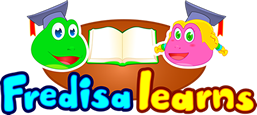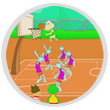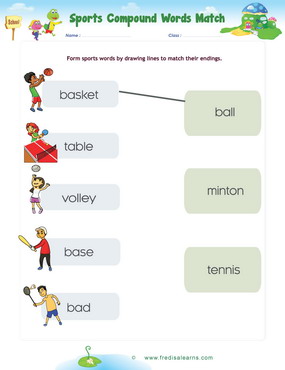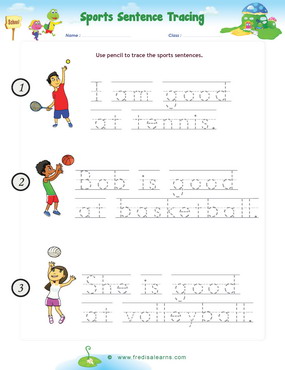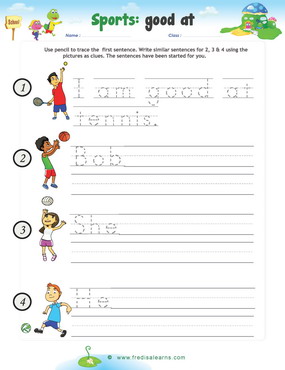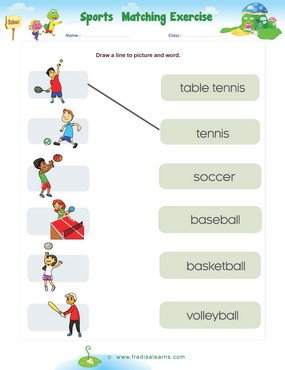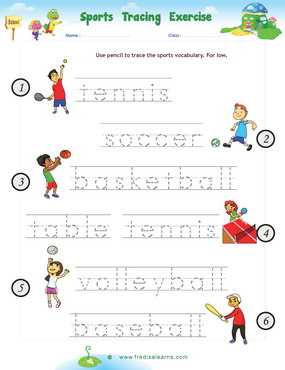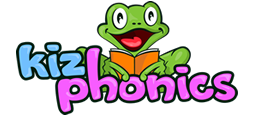Unit 2: Sports
Objectives:
- In this ESL kids lesson, students will learn to express a preference of different kinds of sports.
- Students will learn words and expressions used when talking about their favorite sports.
- It also teaches learners how to talk about personal abilities using some adjectives followed by prepositions (good at, bad at) and the modal verb ‘can.'
- The lesson also teaches students how to compare things in the most fundamental
- To learn to conjugate verbs in the present tense while highlighting how the form changes in the third person singular.
- The lesson will teach compound words & nouns essential vocabulary building skills.
Main Lesson Materials & Study Steps
1st –This cartoon animated video features a short dialogue, followed by vocabulary and sentence breakdown. It is essential for introducing the words, phrases, grammar, spelling and sentences of the lesson in context. Watch repeatedly to master the content. The video plays on any device.
2nd – Then the student plays this fun game after watching the video, to practice the contents of the lesson. The game reviews key vocabulary, grammar and sentences from the lessons. This game can be played on any device.
3rd – Finally the learner takes this test of the unit. The score of this test is captured in the LMS and gives educators an idea of how well their learner is doing. The test opens on any device – mobile & PC.
Worksheets for the Unit
The worksheets below are useful for offline and classroom activities. These printable exercises directly correlate with the above lesson 'Sports'. Every worksheet comes with an answer sheet on the second page for educators.
Already a Member?
Not a member yet?
Lesson Story:
It's a sports and P.E. day at school. Freddie, Lisa, and the others are on the playground. Students are playing different kinds of games. A conversation begins about their sports preferences and an expression of their abilities. Freddie and Bob are amazed by a short boy outplaying the tall boys in basketball, which goes to teach kids to avoid stereotypical judgment of others.
Vocabulary:
| basketball, volleyball, soccer, table tennis, badminton, tennis, running |
Key Sentences/Grammar
Sentence Structures:
Grammar:Adjectives followed by prepositions (good at, bad at), comparatives (better than, faster) 1- Compound Words/Nouns(Words formed by combining two words)
2- Verb 'to like' - present simple(The verb 'to like' is a stative verb that describes a state, situation or condition. The focus will be on how the verb only changes in the 3rd person singular. )
3- Adjectives followed by prepositions(Some adjectives are often followed by a preposition in particular circumstances. When talking about things we can do very well or very badly, we often use the adjective 'good' or 'bad' followed by the preposition 'at'. )
|
This lesson is part of the Level 3 English course.
Welcome to Unit 2: Sports! This exciting ESL kids lesson is designed to teach young learners how to express their preferences for different types of sports. Through this lesson, students will learn vocabulary words and expressions commonly used when discussing their favorite sports. They will also learn how to describe their personal abilities using adjectives followed by prepositions, such as "good at" and "bad at," as well as the modal verb "can."
But that's not all! This lesson will also teach students how to compare things, an important skill in language learning. Additionally, students will learn to conjugate verbs in the present tense, with a particular focus on how the form changes in the third person singular.
But wait, there's more! This lesson also includes essential vocabulary building skills, such as learning compound words and nouns. By the end of this unit, students will be confident in their ability to discuss their favorite sports, describe their abilities, and compare different things. Get ready to have some fun while learning valuable language skills!
